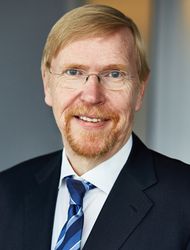
Before starting the institute, Thomas Mayer was Chief Economist of Deutsche Bank and in that role headed Deutsche Bank Research, the bank’s economic think-tank. He also worked for Goldman Sachs, Salomon Brothers, the International Monetary Fund and the Institute for the World Economy in Kiel. Since 2003 and 2015, he is CFA Charterholder and honorary professor at University of Witten-Herdecke, respectively.
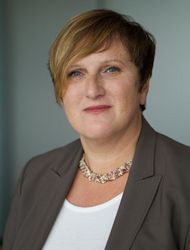
Katarina Müller joined Flossbach von Storch in 2007 and has worked at the institute since 2014. She received her degree in economics at the Carl von Ossietzky University in Oldenburg.
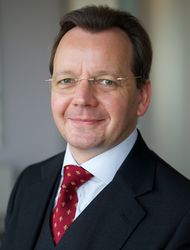
Norbert Friedrich Tofall joined the institute in 2014. Between 2004 and 2011, he was a lecturer for the Europe University Viadrina in Frankfurt (Oder) for the curriculum “Master in International Management” in Minsk (Belarus). Norbert F. Tofall worked as an advisor to German MP Frank Schäffler between 2008 and 2013.
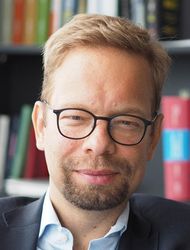
At the Institute since 2017. Trained as a banker at the Landesbank Hessen-Thüringen in Frankfurt a.M.. Studied political science and economics in Freiburg, Erfurt and Madrid. Doctorate at the Universidad Rey Juan Carlos in Madrid. Research focus is the sociology of finance.
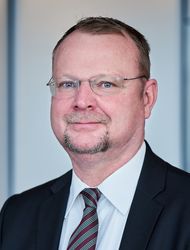
At the Institute since 2022. The graduate in business administration (FH), previously worked as a journalist and deputy head of "Money" at WirtschaftsWoche. The trained banker and book author ("Die Bilanztrickser") taught balance sheet research part-time at the private university BiTS in Iserlohn.
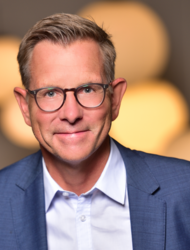
Prof. Dr. Gunther Schnabl is Senior Advisor of the Flossbach von Storch Research Institute based in Cologne. Since April 2006, Prof. Schnabl has been the Chair of Economic Policy and International Economic Relations at the University of Leipzig, where he heads the Institute for Economic Policy. As a Senior Fellow, Prof. Schnabl primarily supports the Flossbach von Storch Research Institute in the areas of monetary and economic policy.
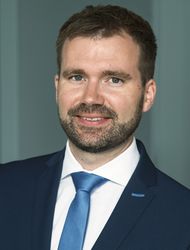
Philipp Immenkötter joined the institute in 2014. He earned a degree in business mathematics and a PhD in finance while studying at the University of Cologne. He was a visiting scholar at the University of Pittsburgh. Philipp Immenkötter’s research entails company analysis as well as asset price inflation. He also lectures at the University of Cologne.
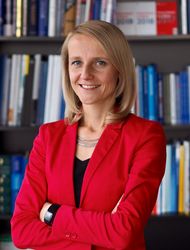
Agnieszka Gehringer joined the institute in 2015. She studied economics at the University of Rome “La Sapienza” and later earned a PhD in economics of complexity at the University of Turin. Since November 2019 she has been a professor of Economics at the Cologne University of Applied Sciences and since July 2016 a lecturer at the University of Göttingen. She has published several articles in academic journals and is an advisor to the EU.
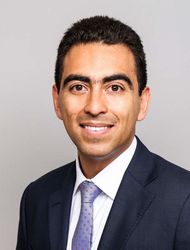
Pablo Duarte joined the institute in 2020. He earned a PhD in economics from Leipzig University and was a visiting researcher at New York University. He studied economics at Leipzig University and Universidad del Rosario (Colombia). Pablo Duarte’s research interests include international macroeconomics and economic policy.
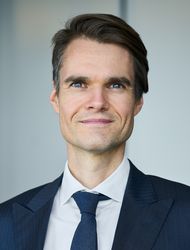
At the Institute since 2022. Formerly employed at the Karlsruhe Institute of Technology and at the reinsurer SCOR. Doctor of mathematics and actuary DAV. Lecturer at the Technical University of Cologne and at the German Actuarial Academy.

Before starting the institute, Thomas Mayer was Chief Economist of Deutsche Bank and in that role headed Deutsche Bank Research, the bank’s economic think-tank. He also worked for Goldman Sachs, Salomon Brothers, the International Monetary Fund and the Institute for the World Economy in Kiel. Since 2003 and 2015, he is CFA Charterholder and honorary professor at University of Witten-Herdecke, respectively.

Prof. Dr. Gunther Schnabl is Senior Advisor of the Flossbach von Storch Research Institute based in Cologne. Since April 2006, Prof. Schnabl has been the Chair of Economic Policy and International Economic Relations at the University of Leipzig, where he heads the Institute for Economic Policy. As a Senior Fellow, Prof. Schnabl primarily supports the Flossbach von Storch Research Institute in the areas of monetary and economic policy.

Katarina Müller joined Flossbach von Storch in 2007 and has worked at the institute since 2014. She received her degree in economics at the Carl von Ossietzky University in Oldenburg.

Philipp Immenkötter joined the institute in 2014. He earned a degree in business mathematics and a PhD in finance while studying at the University of Cologne. He was a visiting scholar at the University of Pittsburgh. Philipp Immenkötter’s research entails company analysis as well as asset price inflation. He also lectures at the University of Cologne.

Norbert Friedrich Tofall joined the institute in 2014. Between 2004 and 2011, he was a lecturer for the Europe University Viadrina in Frankfurt (Oder) for the curriculum “Master in International Management” in Minsk (Belarus). Norbert F. Tofall worked as an advisor to German MP Frank Schäffler between 2008 and 2013.

Agnieszka Gehringer joined the institute in 2015. She studied economics at the University of Rome “La Sapienza” and later earned a PhD in economics of complexity at the University of Turin. Since November 2019 she has been a professor of Economics at the Cologne University of Applied Sciences and since July 2016 a lecturer at the University of Göttingen. She has published several articles in academic journals and is an advisor to the EU.

At the Institute since 2017. Trained as a banker at the Landesbank Hessen-Thüringen in Frankfurt a.M.. Studied political science and economics in Freiburg, Erfurt and Madrid. Doctorate at the Universidad Rey Juan Carlos in Madrid. Research focus is the sociology of finance.

Pablo Duarte joined the institute in 2020. He earned a PhD in economics from Leipzig University and was a visiting researcher at New York University. He studied economics at Leipzig University and Universidad del Rosario (Colombia). Pablo Duarte’s research interests include international macroeconomics and economic policy.

At the Institute since 2022. The graduate in business administration (FH), previously worked as a journalist and deputy head of "Money" at WirtschaftsWoche. The trained banker and book author ("Die Bilanztrickser") taught balance sheet research part-time at the private university BiTS in Iserlohn.

At the Institute since 2022. Formerly employed at the Karlsruhe Institute of Technology and at the reinsurer SCOR. Doctor of mathematics and actuary DAV. Lecturer at the Technical University of Cologne and at the German Actuarial Academy.

